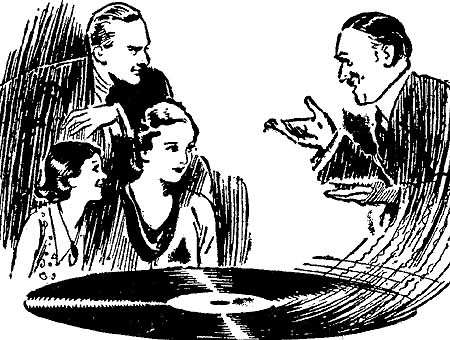|
I take the main purport of your
book to be a not disinterested
look at the relation between
theory and practice
in language writing, and an effort
to situate it in the context of
"literary history" but not to
fully historicize or contextualize the movement.
Reading it, I tried to articulate for myself
what the ambition of language-writing
really was or is, other than to have
subverted existing notions of what
poems are or might be. This is not nothing
but it does point to a kind of negative
ideology: not that, not that either.
There are a lot of implied
and not so implied no-nos, many
of which seem to have stemmed
from European theoretical writings
- the usual suspects -
which in itself is interesting
as it seems to carry forward
some of the modernist
engagement with French culture
in particular. I hope this doesn’t
sound like incipient xenophobic isolationism
but I am interested in how
theoretical critiques might be
housed in prior cultural beliefs
and practices and wonder if they have
universal application. Is there
a way we can say that
theory makes universalist claims
and that poems are by nature
more specifically culturally bound? Was one
aim of language-writing to
try to break this specificity
without falling into the trap of
unified selves and
universalist vocabularies?
I want here to mention the fact
that in your book at least
it seems that the men are theorists
and the women practitioners.
You have Silliman, Watten,
Bernstein, Andrews and Grenier
as theoretical architects and you have
the women writers
as exemplars, sort of live-in girlfriends.
Leslie Scalapino gets
a long footnote to Chapter Four where
she is seen arguing with Ron Silliman
about theoretical matters but that is it
in terms of women theorizing,
although I suppose the caveat here is
the women writers you discuss, Hejinian, Harryman
Dahlen, Howe and Armantrout in particular,
practice what they preach: theory
is subsumed wholly into practice.
I want to again ask
exactly what "positive values"
were or are being put forward?
You make frequent reference
to the poem as "eternal occasion"
but you are, are you not, being more
than half-ironic about any such claim.
You show on a number of occasions
the kinds of formal investments
most admired
and which certainly don’t need
reiterating here, but this brings me to
ask an embarrassing question
about the place of affect or feeling or spirit -
there is a pervasive sense that, unless
ironized or satirized to extinction
or, as in the case of Bruce Andrews,
emitted as full-throttled Eros
embracing Thanatos in a cultural headlock,
these are verboten. This perception
is undoubtedly misguided
and I have put my question awkwardly.
None of the writers
you talk about is without feeling.
It has to do with the objectification of feeling
or rather the rendering of sites of feeling
in such a way that structural or formal
aspects are foregrounded and the
subjective or expressive self is eclipsed.
See for example, your note on page 171
on Creeley in which you say, quote:
Pieces ends with Creeley and an
unnamed woman having sex
as his wife is getting his children
off to school. This does not make
Creeley confessional, however:
the difference between his writing
and Lowell’s or Plath’s is that
the focus of the poem remains
at the level of the syllable; nor
are the events presented as
subjects for agony. This strikes me
as an almost comical disclaimer
which you then modify by saying
Nevertheless, to ignore Creeley’s
frankness and to regard his work
as purely formal seems a distortion.
And, similarly, in discussing Ron Silliman’s
work, you say At such times,
the writing seems autobiographical, even
though the narrative is focused
more at the tip of the pen
than in the memory of the writer.
I really am not sure I know
what this means, or rather it seems
to be begging the question.
What I understand you to mean
is that emotionally-charged subjects
like sleeping with another woman
or the death of a loved one are
admissible only if or when they are in some sense
objectified, made ironic, or held in cheek by
clearly demarcated formal structures.
The resistance isn’t so much to
the unified subject, the lyric, or to narrativity per
se
but to a certain display of subjectivity
in which the self is staged as either exemplary
or unique. O’Hara as the hero of
"Personism" gets away with it because his
tongue is in his cheek. But is it possible that
this bracketing of emotion
along with constant emphasis on the present
here nowness, materiality of language,
resistance to narrativity and so forth might be a
denial of mortality, literary as well as
actual, a fundamental resistance to change?
I think it is interesting that there can be
a logical lyrical mourning for the
degradation of the public sphere
which is unironic, but not a
lament for the lost maker.
Perhaps the central issue here, I mean
actually here, tonight, is
the relation between private - read individual -
and public in postmodern late capitalist America
in which the poem or poetry is
the paradigmatic cultural site.
|


